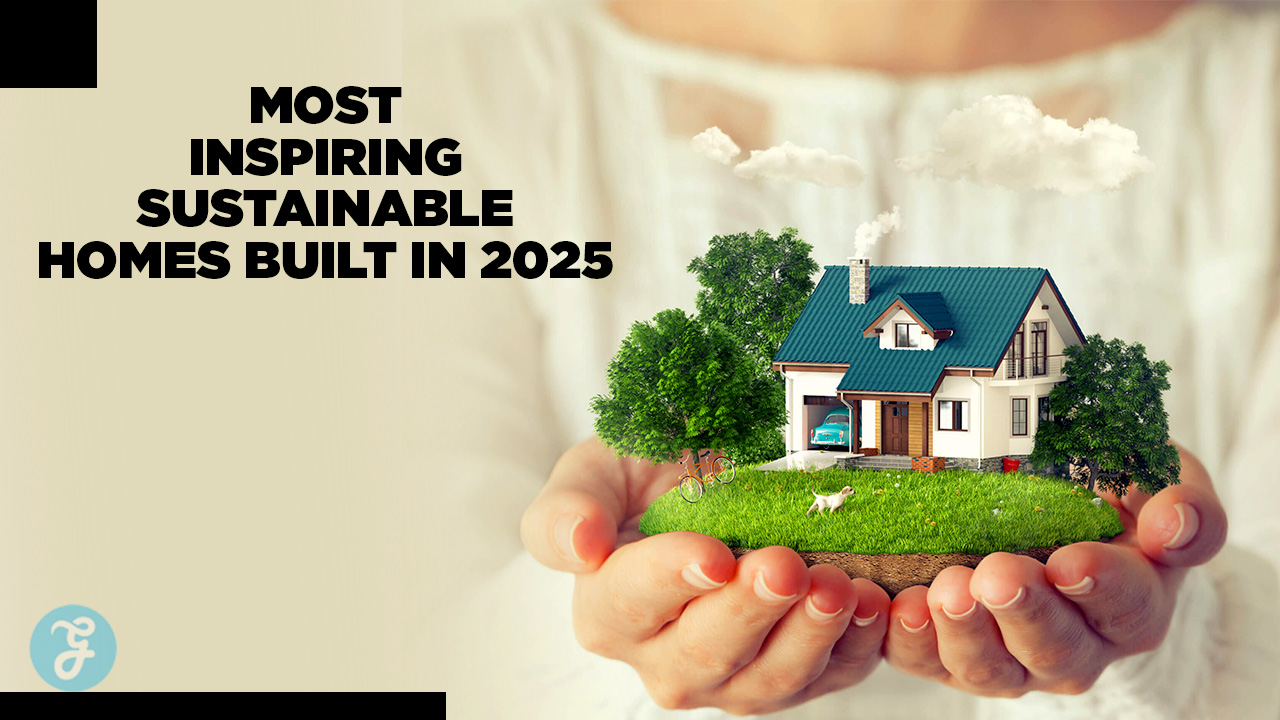In the intricate tapestry of human experience, relationships form the vibrant threads that weave our lives together. These connections, whether familial, romantic, or professional, have the power to shape our journey, influence our decisions, and profoundly impact our overall well-being.
Yet, in today’s fast-paced, digitally-driven world, fostering deep, meaningful relationships can often feel like navigating uncharted waters. This is why this article looks at how to build strong relationships at forming deeper connections.
How to Build Strong Relationships
This comprehensive guide delves into the 12 essential steps for building strong relationships, offering a roadmap to deeper connections. From cultivating self-awareness to embracing vulnerability, each step is designed to strengthen the bonds that enrich our lives.
As we explore these crucial elements, we’ll uncover how effective communication, empathy, and mutual respect serve as the cornerstones of lasting relationships. By mastering these steps, you’ll not only enhance your personal interactions but also create a ripple effect of positive change in your community and beyond.
1. Cultivate Self-Awareness: Get to Know Yourself First
Alright, first things first – before you can connect deeply with others, you’ve got to get cozy with yourself. Think of self-awareness as your relationship superpower. It’s like having a map of your own heart and mind.
Here’s how to boost your self-awareness:
- Take a “me-time” timeout: Set aside some quiet time each day to check in with yourself. How are you feeling? What’s bugging you? What’s making you smile?
- Keep a journal: Writing down your thoughts can help you spot patterns in your behavior and emotions.
- Try mindfulness or meditation: These practices can help you tune into your thoughts and feelings in real-time.
- Ask for feedback: Sometimes, others see us more clearly than we see ourselves. Ask trusted friends or family for honest feedback about your strengths and blind spots.
Remember, the goal isn’t to be perfect (newsflash: nobody is!). It’s about understanding your quirks, triggers, and awesome qualities. When you know yourself better, you can communicate more clearly and empathize more easily with others.
Fun fact: A study published in the Journal of Personality and Social Psychology found that people with higher self-awareness have more satisfying relationships. So, getting to know yourself isn’t just navel-gazing; it’s relationship rocket fuel!
2. Practice Active Listening: Tune In, Tune Out Distractions
Okay, pop quiz: When was the last time you felt truly, completely heard by someone? It feels amazing, right? That’s the power of active listening, and it’s a game-changer for relationships.
Active listening isn’t just about staying quiet while the other person talks. It’s about fully tuning in, like you’re trying to hear a whisper at a rock concert.
Here’s how to level up your listening skills:
- Put away the distractions: That means your phone, your to-do list, and that earworm song that’s been stuck in your head all day.
- Use your body language: Face the person, make eye contact, and nod or smile to show you’re engaged.
- Reflect on what you hear: Try saying things like, “So what I’m hearing is…” or “It sounds like you’re feeling…
- Ask curious questions: Show you’re interested by asking for more details or clarification.
- Resist the urge to problem-solve (unless asked): Sometimes people just want to be heard, not fixed.
Here’s a cool tidbit: Research from the University of Minnesota found that couples who practiced active listening reported higher relationship satisfaction and fewer conflicts. So, next time someone’s talking to you, pretend your ears are super-powered listening devices. Your relationships will thank you!
3. Communicate Openly and Honestly: Keep It Real, Keep It Kind
Let’s get real for a second – how many times have you bitten your tongue to avoid rocking the boat? Or maybe you’ve blurted out something in anger and instantly regretted it? Communication is like walking a tightrope—you’ve got to balance honesty with kindness.
Here’s how to master the art of open, honest communication:
- Use “I” statements: Instead of “You always ignore me,” try “I feel overlooked when…”
- Be specific: Vague complaints are relationship kryptonite. Get specific about what’s bothering you.
- Choose the right time and place: Avoid heavy conversations when you’re hangry, tired, or in public.
- Practice radical honesty (with a dose of tact): Share your true thoughts and feelings, but consider how to phrase them kindly.
- Listen without defensiveness: When it’s the other person’s turn to share, listen with an open heart.
Remember, honesty without kindness is cruelty, and kindness without honesty is manipulation. Aim for that sweet spot in the middle.
Pro tip: A study in the Journal of Social and Personal Relationships found that couples who communicated openly about their needs and feelings reported higher levels of intimacy and satisfaction. So, keeping it real (and kind) is the way to go!
4. Show Empathy and Understanding: Walk a Mile in Their Shoes
Empathy is like a superpower for relationships. It’s the ability to put yourself in someone else’s shoes and really feel what they’re feeling. And let me tell you, it’s a game-changer.
Here’s how to flex your empathy muscles:
- Practice perspective-taking: Imagine the situation from the other person’s point of view. What might they be thinking or feeling?
- Validate their feelings: Even if you disagree, acknowledge that their feelings are real and valid.
- Use phrases like “That must be tough” or “I can imagine how that would feel” to show you’re trying to understand.
- Share similar experiences (but don’t hijack the conversation): If you’ve been through something similar, share briefly to show you can relate.
- Remember that empathy isn’t about fixing: Sometimes, people just need to feel understood, not solved.
Here’s a mind-blowing fact: Research from the University of Cambridge found that people with higher levels of empathy have stronger social relationships and are more satisfied with their lives. So, by boosting your empathy, you’re not just helping others; you’re helping yourself too!
5. Be Reliable and Consistent: Show Up and Follow Through
Reliability might not sound sexy, but trust me, it’s the secret sauce of strong relationships. Being someone others can count on is like relationship gold.
Here’s how to be the reliable rock in your relationships:
- Do what you say you’ll do: If you make a promise, keep it. If you can’t, communicate early and honestly.
- Be punctual: Showing up on time shows you value the other person’s time.
- Follow up: If someone shares something important, check in later to see how they’re doing.
- Be consistent in your behavior: Wild mood swings and unpredictable reactions can make others feel walking on eggshells.
- Admit when you mess up: We all drop the ball sometimes. When you do, own it and make it right.
Fun fact: A study in the Journal of Marriage and Family found that reliability was one of the top predictors of relationship satisfaction. So, being dependable isn’t just nice; it’s crucial for strong relationships.
6. Practice Forgiveness: Let Go and Grow Together
Alright, let’s talk about forgiveness. It’s not always easy, but it’s like Miracle-Gro for relationships. Holding onto grudges is like carrying around a heavy backpack—it weighs you down and holds you back.
Here’s how to cultivate a forgiving heart:
- Acknowledge your feelings: It’s okay to feel hurt or angry. Recognize these feelings without judgment.
- Try to understand the other person’s perspective: What factors might have led to their actions?
- Decide to forgive: Forgiveness is a choice, not just a feeling.
- Communicate your forgiveness: Let the other person know you’re choosing to forgive.
- Set boundaries if needed: Forgiveness doesn’t mean letting someone repeatedly hurt you.
- Practice self-forgiveness too: Often, the hardest person to forgive is yourself.
Here’s a nugget of wisdom: Research published in the Journal of Positive Psychology found that people who practice forgiveness report higher levels of happiness and better physical health. So, forgiveness isn’t just good for your relationships—it’s good for you!
7. Show Appreciation and Gratitude: Spread the Love
Ever notice how a genuine “thank you” can brighten your whole day? That’s the power of appreciation and gratitude. It’s like relationship fertilizer—it helps good things grow.
Here’s how to sprinkle more gratitude into your relationships:
- Make it specific: Instead of a general “thanks,” say what you’re thankful for and why it matters to you.
- Catch people doing things right: Don’t wait for big gestures. Appreciate the little things too.
- Write gratitude notes: A heartfelt thank-you note can mean the world to someone.
- Create a gratitude ritual: Maybe share one thing you’re grateful for at dinner each night.
- Express appreciation for who they are, not just what they do: “I appreciate your kindness” can be even more powerful than “Thanks for doing the dishes.”
Check this out: A study in the journal Emotion found that expressing gratitude to a romantic partner boosted the expresser’s relationship satisfaction. It’s like a boomerang of good vibes—what you send out comes right back to you!
8. Respect Boundaries: Good Fences Make Good Neighbors
Boundaries might sound like walls, but they’re actually the secret to getting closer. They’re like the invisible lines that help us feel safe and respected in relationships.
Here’s how to master the art of boundaries:
- Know your own boundaries: What are your limits? What makes you uncomfortable?
- Communicate your boundaries clearly: Don’t expect others to read your mind.
- Respect others’ boundaries: If someone says “no” or seems uncomfortable, back off.
- Use “I” statements: “I need some alone time” is clearer than “You’re smothering me.”
- Be willing to negotiate: Boundaries can be flexible, but the negotiation should be mutual.
- Remember that “no” is a complete sentence: You don’t always need to explain or justify your boundaries.
Here’s an interesting tidbit: Research in the Journal of Marital and Family Therapy found that couples who respected each other’s boundaries reported higher relationship satisfaction. So, setting and respecting boundaries isn’t pushing people away – it’s actually bringing you closer!
9. Invest Time and Effort: You Reap What You Sow
Strong relationships are like gardens; they need regular tending to flourish. Investing time and effort in your relationships is like watering and fertilizing your relationship garden.
Here’s how to invest wisely in your relationships:
- Schedule regular quality time: Whether it’s a weekly date night or a monthly catch-up with a friend, put it on the calendar.
- Be fully present: When you’re with someone, really be with them. Put away distractions and engage.
- Show up for the big moments: Be there for celebrations, tough times, and everything in between.
- Invest in shared experiences: Create memories together through shared activities or adventures.
- Keep in touch regularly: A quick text or call can help maintain connections between face-to-face meetups.
- Remember important dates: Birthdays, anniversaries, and other significant dates matter.
Here’s a cool fact: A study in the Journal of Marriage and Family found that couples who spent quality time together regularly reported higher levels of relationship satisfaction. So, investing time in your relationships isn’t just nice; it’s necessary for keeping them strong and healthy.
10. Embrace Vulnerability: Dare to Be Real
Vulnerability might feel scary, but it’s the secret sauce of deep connections. It’s about showing your true self, warts and all.
Here’s how to practice vulnerability in your relationships:
- Share your feelings: Let others know when you’re happy, sad, scared, or excited.
- Ask for help when you need it: It’s not a sign of weakness; it’s a sign of trust.
- Admit when you don’t know something: It’s okay not to have all the answers.
- Share your dreams and fears: Let others in on what really matters to you.
- Accept compliments graciously: Don’t brush off kind words; let them sink in.
- Be willing to say “I was wrong” or “I’m sorry”: Admitting mistakes takes courage and builds trust.
Get this: Dr. Brené Brown’s research shows that vulnerability is the birthplace of love, belonging, joy, courage, empathy, and creativity. So, by being vulnerable, you’re not just deepening your relationships—you’re enriching your whole life!
11. Practice Patience and Understanding: Rome Wasn’t Built in a Day
In our fast-paced world, patience can feel like a lost art. But in relationships, it’s pure gold. Remember, everyone’s on their own journey, moving at their own pace.
Here’s how to cultivate patience and understanding:
- Take a breath before reacting: Pause and ask yourself if your reaction is helpful.
- Practice empathy: Try to understand where the other person is coming from.
- Adjust your expectations: Are you expecting perfection? That’s a recipe for frustration.
- Communicate instead of assuming: If someone’s behavior is bothering you, talk about it before jumping to conclusions.
- Remember that growth takes time: People don’t change overnight. Celebrate small steps.
- Be patient with yourself too: You’re also a work in progress.
Here’s some food for thought: A study in the Journal of Personality and Social Psychology found that patient people experience more positive emotions and higher life satisfaction. So, practicing patience isn’t just good for your relationships – it’s good for your overall happiness!
12. Celebrate Differences: Vive la Différence!
Differences in relationships can be challenging, but they can also be a source of growth, learning, and excitement. It’s all about how you approach them.
Here’s how to celebrate the differences in your relationships:
- Be curious about different perspectives: Ask questions and really listen to the answers.
- Look for the positive in differences: How do your differences complement each other?
- Respect different ways of doing things: There’s often more than one “right” way.
- Learn from each other: Differences can be opportunities for growth.
- Find common ground: Focus on shared values and goals, even when opinions differ.
- Embrace the adventure: Different perspectives can lead to new experiences and ideas.
Check this out: Research published in the Journal of Social and Personal Relationships found that couples who appreciated their differences reported higher relationship satisfaction. So, celebrating differences isn’t just about tolerance; it’s about embracing the richness that diversity brings to our lives!
Takeaways
How to build strong relationships to connect deeper? It requires patience, dedication, and consistent care. By implementing these 12 essential steps, from active listening to celebrating differences, you’re not just creating connections; you’re crafting a life rich in meaningful interactions and mutual growth.
Remember, every small effort in strengthening your relationships compounds over time, leading to a more fulfilling, connected, and resilient life. As you apply these principles, you’ll find that the depth and quality of your relationships become a source of strength, joy, and endless possibilities. So, take that first step today—your future self and those around you will thank you for it.







































